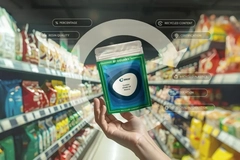America Recycles Day: Republic Services highlights consumer confusion and misplaced confidence in waste management

15 Nov 2022 --- A survey from Republic Services reveals that despite high confidence levels, most US consumers lack an understanding of proper recycling practices – particularly for plastics. As the industry trends toward circularity with the growing use of recyclables, the need to inform the public of appropriate recycling practices is increasingly important.
After surveying 2,000 US citizens, the solid waste collection company found that 64% did not know which types of plastics could be recycled. The survey revealed that this confusion about which plastics should be recycled leads some to forgo it altogether.
To celebrate America Recycles Day today, Republic Services is sharing information to help address plastics recycling misconceptions and educate consumers on recycling best practices.

 Republic Services reveals that consumers avoid recycling altogether due to confusion. “America Recycles Day is an opportunity for everyone to brush up on their knowledge of proper recycling. Republic Services is committed to helping consumers understand which common plastic items can be recycled, helping to meet demand and advance the circular economy for the long term,” says Pete Keller, vice president of recycling and sustainability at Republic Services.
Republic Services reveals that consumers avoid recycling altogether due to confusion. “America Recycles Day is an opportunity for everyone to brush up on their knowledge of proper recycling. Republic Services is committed to helping consumers understand which common plastic items can be recycled, helping to meet demand and advance the circular economy for the long term,” says Pete Keller, vice president of recycling and sustainability at Republic Services.
Survey results and suggestions
Of the participants, 61% incorrectly believe flexible plastics, including grocery bags and bubble wrap, are recyclable in their curbside bins.
According to the United States Environmental Protection Agency, 740,000 metric tons of plastic bags, sacks and wraps were combusted, 3.04 million tons were landfilled and the recycling rate of the materials was 10% in the US in 2018.
The most widely accepted recyclable plastics are water bottles, milk jugs and laundry detergent jugs, yet the survey found that consumers are not consistently recycling them. Only 62% of consumers recycle water bottles, 51% recycle milk jugs and 43% recycle laundry detergent jugs.
The company predicts that as major brands set ambitious targets for recycled content and state legislators adopt minimum recycled content standards, demand for improved public understanding of recyclables is set to rise.
Republic Services came out with five key recommendations for the public to improve their knowledge and increase recycling rates. The consumer survey confirms the persistent problem of public confusion surrounding recycling.
The consumer survey confirms the persistent problem of public confusion surrounding recycling.
First, consumers are told to focus on recycling hard plastics, such as bottles, jugs and tubs labeled #1, #2 or #5. They should refrain from recycling flexible plastics, including grocery bags, plastic wrappers or bubble wrap in their curbside bins. Furthermore, only bag recyclables while always ensuring recyclables are whole, clean and dry. Lastly, check with service providers on what they accept, as recycling materials vary by location.
Ongoing confusion
The confusion surrounding recycling has been an ongoing issue within the industry. In 2019, UK WRAP and The On-Pack Recycling Label (OPRL) organization formed a strategic partnership to provide consistent messaging on packaging labels and improve household and on-the-go recycling levels.
UK resource management company Veolia has called for clearer recycling labels on the packaging after YouGov research found that only 8% of UK consumers strongly believe that they are clear. Over a third of respondents admitted that recycling confuses them, while only 12 percent felt they could trust recycling labels.
Provenance, Valpak, and WRAP launched a recycling tool to boost the UK’s low recycling rates by enhancing consumer recycling behavior. The device is accessible online or via QR codes on the packaging.
By Sabine Waldeck












